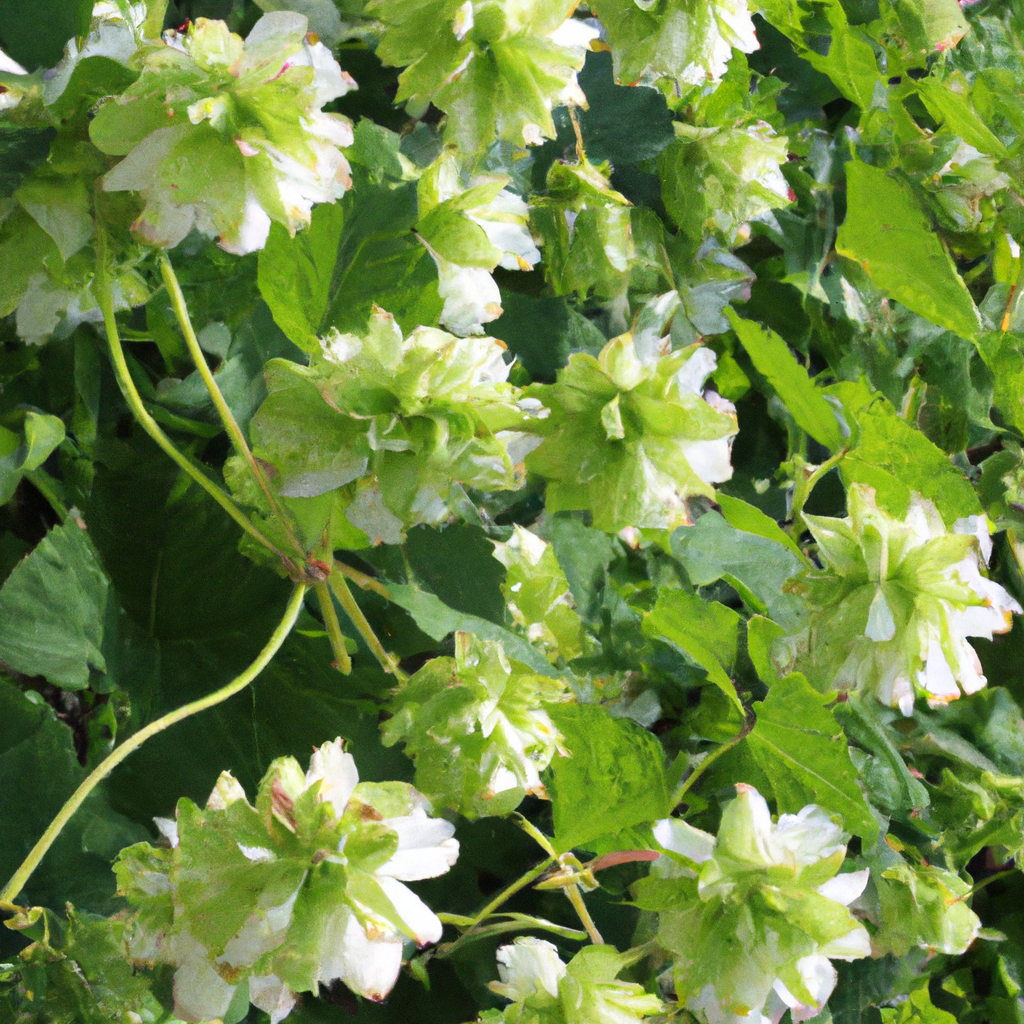Biological Name:
Large-Hop-Clover: Trifolium aureum
Natural Habitat:
Large-Hop-Clover: The natural habitat for large hop clover is fields, pastures, and waste places. It is native to Europe, but has been introduced to North America, where it is now widespread.
Description:
Large-hop-clover is a type of flowering plant that is commonly found in fields and other grassy areas. It is a member of the Fabaceae family which also includes plants such as beans and peas. Large-hop-clover is an annual or perennial plant that produces small white or pink flowers and clusters of seeds. The plant is often used as a cover crop to improve soil health and suppress weeds. It is also known for its ability to tolerate a wide range of growing conditions including wet or dry soils. In some areas large-hop-clover is considered a weed because of its ability to invade cultivated areas and cause allergies and other health problems.
Frequently Asked Questions (FAQs)
Q: Is large hop clover edible?
A: Edible Parts Although very little information exists for this type of clover, what is known it that the flowers, leaves and seeds are edible. Flowers can be put into teas. Seeds (in autumn) can be collected and eaten as is or roasted. They can be ground into flour as well.
Source
Q: How do you get rid of big hop clover?
A: Spray a Vinegar Solution Mix one cup of vinegar with a cup of water and one drop of dish soap. Shake it up and spray it onto any patches of clover. The vinegar will dry out the clover’s leaves, and the dish soap will make sure it sticks. You may need to spray over a series of weeks to kill off the clover completely.
Source
Q: Which clover has the deepest roots?
A: uniflorum accessions were generally the deepest out of all the clover entries, and roots of the two hybrid entries were also deeper than those of the white clover cultivars (Fig. 2).
Source
Q: Is clover poisonous to humans?
A: While wild clover is considered poisonous to humans in large quantities, in small quantities, clover is both edible and potentially beneficial to your health.
Source
Q: Is hop clover good for horses?
A: Clover can be a good feed source for most horses because it provides useful energy and adequate protein and fiber.
Source
Q: Can clover withstand foot traffic?
A: Though clover can tolerate moderate amounts of foot traffic, it’s not as resilient as more traditional turfgrasses. Mixing clover with turfgrass can fix this issue.
Source
Q: Can clover be eaten raw?
A: All parts of the clover plant appear to be edible. Clover blossoms are used to make teas and jellies, while the leaves can be eaten cooked or raw.
Source
Q: Is hop clover invasive?
A: Hop Clover appears to fall into the category of introduced species which do not cause drastic changes in ecology. Hop Clover appears in the Invasive Plant Atlas of the United States; and is considered invasive in Yellowstone National Park.
Source
Q: Will clover choke out plants?
A: Clover fixes nitrogen from the air and releases it to the soil for other plants to use. Clover stays green for a longer season than grass. Clover is very persistent with an aggressive root structure, choking out most weeds.
Source
Q: What is the best clover for ground cover?
A: White clover makes a great ground cover because it grows quickly and spreads fast. The best temperature for white clover is between 50 degrees and 85 degrees Fahrenheit. White clover tolerates cold, but it’s a little sensitive to heat. This type of clover is used by many vineyards and orchards.
Source
Q: Are clover roots deeper than grass?
A: Clover roots grow deeper than grass roots and are able to absorb more water when watered.
Source
Q: What is best clover for wildlife?
A: If you are going to go with just one type of clover for your plot, white clover is the right choice. Gillium pointed out that White Dutch and Ladino are some of the best white clover for deer and both do very well as pure stands.
Source
Q: Is hop clover a legume?
A: Facts. Lesser hop clover is a widely introduced annual legume used as forage. It may invade lawns, where it can tolerate mowing.
Source
Q: Does clover like coffee?
A: Coffee can impede plant growth, but it may also keep away certain pests. Plants like carrots, roses, cabbage, and hydrangeas like coffee grounds — but avoid using them on tomatoes and clovers.
Source
Q: What is a 4 leaf clover plant called?
A: Lucky Leaf or Lucky Clover (Oxalis tetraphylla) is also known as four-leaved sorrel.
Source
Q: Is yellow hop clover edible?
A: The flowers, leaves, and seeds of this plant are edible. The flowers can be used in tea, the seeds can be roasted and eaten as is or they can be ground into flour, and the leaves are good tossed in salad.
Source
Q: Does clover have a tap root?
A: White clover (Trifolium repens L.) seedlings form a taproot that persists for only 1 to 2 yr under field conditions. Subsequent growth and persistence depend on adventitious roots formed at stolon nodes.
Source
Q: What are the 3 legume crops?
A: A legume refers to any plant from the Fabaceae family that would include its leaves, stems, and pods. A pulse is the edible seed from a legume plant. Pulses include beans, lentils, and peas.
Source
Q: Is black medic edible?
A: Black medic seeds and leaves are edible. Plant historians believe that Native Americans may have roasted the seeds or ground them into flour. In Europe and Asia, the foliage was cooked much like collards or spinach.
Source
Q: Is Trifolium Dubium edible?
A: Trifolium dubium is an edible plant that is utilized in traditional medicine for its anti-inflammatory and wound-healing properties.
Source
Q: Does white clover produce cyanide?
A: White clover releases toxic cyanide when its leaf tissues are damaged. This chemical defense, a response called cyanogenesis, helps it to deter insect pests. Research published in New Phytologist shows how white clover developed its anti-herbivory superpower with input from both of its seemingly innocuous parents.
Source

